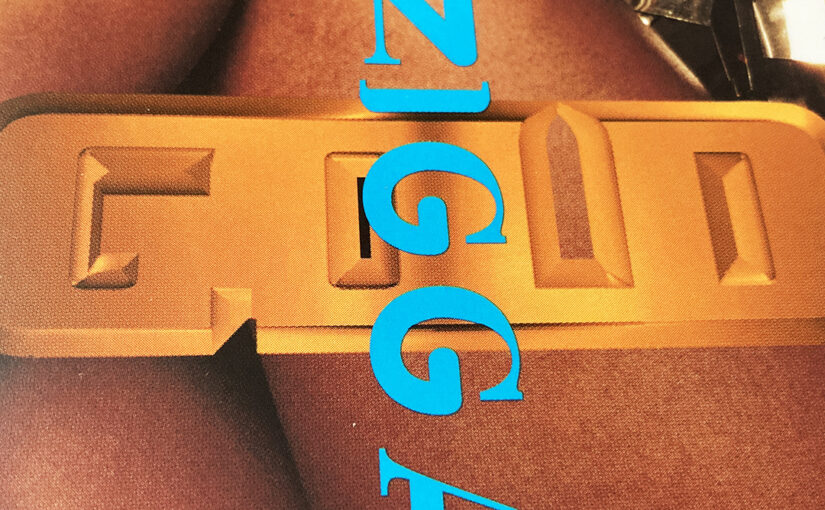Goldnigga (1993)
This live favourite is a ten minute slow funk jam that fills the oceanic space between its two rap verses with a smorgasbord of background chatter, call and response shouts, an ode to safe sex and even a borrowed chorus from the same album’s A Deuce and a Quarter, all lovingly wrapped up in a blanket of receptive crowd noise. If you wade past the first minute of scripted skittage, Johnny begins to feel very organic, an after-show vibe preserved in CD amber. The title’s another dick euphemism but one the whole family can sing along to. Prince later regretted the “NPG in the motherfuckin’ house” chants though, once retaliating “We ain’t doing nothing to nobody’s momma!” Try as he might, that genie wasn’t going back into the bottle.
Tag: Goldnigga
345: 2gether
Goldnigga (1993)
Beneath Goldnigga’s ostentation and dick-joke veneer there’s an urgent appeal for Afro-American unity – a theme which is helped by the album’s removal of Guess Who’s Knockin’ and apexes with 2gether’s pleas for the ending of “black-on-black genocide”. Sporting sax as smooth as Sade, the song’s serious message is sugared by soothing soft-jazz. It’s Steely Dan In The Hour Of Chaos. Slow, hip-hop Xanax that you can file under ‘Kenny G-funk’.
428: Deuce and a Quarter
Goldnigga (1993)
I seem to be rattling through the Goldnigga tracks at a rate of knots in these lower registers of the list but don’t underestimate the warmth held in my heart for them. I once heard somebody say that songs were a puzzle and had a hold over you until you solve them. Overexposure in my youth makes most of Goldnigga feel solved, causing its songs to fall behind ones that still have hidden corners and untapped reservoirs of provocation. But there’s no denying the quality, especially as in 1993, the year The Roots’ first album dropped, live musician-led hip-hop was a bold new construct and sounded subtly subversive. Like Massive Attack’s Blue Lines, this album has become an old friend that I have huge respect for despite not having contacted for years. Germinating from Call the Law and sharing a similar bassline, Deuce and a Quarter (the nickname for a Buick Electra 225 – the car on the CD’s back cover) is a mellow, summer earworm with a chorus so catchy it gets reprised again on the album in the middle of Johnny. It’s also in my opinion Tony M’s finest moment – the unhurried pace and lips-close-to-the-mic throaty timbre suiting him much more than his frantic crowd gee-upping. Confident and unfazed by the musicians downing tools for several beats to throw him off, he rides over the punched holes of silence like that quick brown fox leaping over the lazy dog. I could gush over the horns on this track but as he’s not often shown much love I’m leaving this as a Tony M showreel.
430: Black M.F. in the House
Goldnigga (1993)
A hilarious, riotous ride through a bigot-mocking, stereotype-toting, Deliverance-quoting, pig-squealing bar brawl. A high-energy funk feud that’s daft comedy at first glance but has some incendiary, hard-hitting language lurking within, underlining (rather than undermining) the final “end racism now” stamp. It kicks off with the same Chambers Brothers harmonica sample that crops up in the middle of Thieves in the Temple, sounding here like a hen house being upended, while Tony M argues with white door staff protecting their establishment from the “black muthafuckers in the house”. They gain entry and hilarity ensues with Prince’s dusting off his finest Deep South impression as his presence is heard for the first time on this NPG album as one of the song’s yeehawing rednecks. The solo after he shouts “u gonna play the piano or just bang on it?” is easily missed amongst the commotion but gives you a feel of what a barnstorming live track this would have been. The song’s ambition is breathtaking, the comic timing spot on and the radio-antagonistic lyrics, deplorable in other contexts, are made palatable by its slapstick setting and humorously highlights the absurdity of racism.
435: Guess Who’s Knockin’
Goldnigga (1993)
A first-pressing Goldnigga track that was, at Prince’s behest, pulled from subsequent runs due to the sizeable borrowing from The Wings’ Let ’em In. The removal was possibly due to artistic reasons. At this point Prince’s discography was still cover version free and samples were only used as seasoning. Having a track formed around a borrowed chorus was a bold move and may have been discarded like an unwanted crutch in a similar way to how Cat’s Cindy C rap later got edited out of Positivity after Prince discovered it was lifted from JM Silk’s Music is the Key. But I think the more likely reason is that he begrudged sharing album royalties with Paul McCartney. It’s a shame as it’s one of the catchier tracks on the album and not just because of the Beatle input. Crazed synths, stabbing horns and scratched samples of Biz Markie create a straight-up hip-hop beat that wouldn’t sound out of place on a Das Efx or early Pharcyde release. My fourteen-year-old self cultivated a personality out of nuggets like these.
477: Goldnigga
Goldnigga (1993)
Snaking its way through the NPG album of the same name this three-part groove was originally one full song but got carved up into intro, interval and outro. It acts in a way similar to the ginga in capoeira in that it’s a fluid state of movement, readying for an attack that bursts forth from the album’s more energetic tracks. Or at least that would be the case if the album wasn’t bogged down with those useless skits (or segues) that litter the genre (thanks for that De La Soul!) resulting in a stuttered flow. They even bleed into parts 2 and 3 of this triptych too but ignore the vocals it’s all about the languid but poised undercurrent. Sax and DJ scratches drift by as welcome flotsam and jetsam while Tony M swaggers about as if he owned the sea. Tony, it’s not about you.

